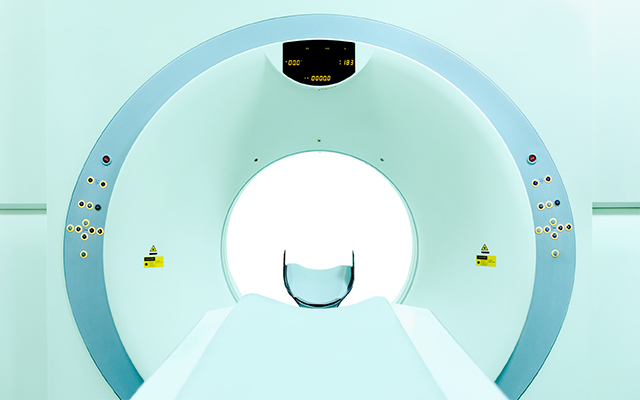I’m not the kind of guy who regularly visits the doctor, but if I were and if I lived in Chapel Hill, N.C., I’d look up Nortin Hadler, MD. Hadler is a professor of medicine and microbiology/immunology at the University of North Carolina at Chapel Hill and an attending rheumatologist at UNC Hospitals. He’s also the author, most recently, of Rethinking Aging: Growing Old and Living Well in an Overtreated Society (UNC Press, 2011), and one of the most provocative thinkers on the subject of aging and healthcare I’ve come across in a long time.
In Rethinking Aging, Hadler argues that the healthcare industry is essentially abusing aging Americans by medicalizing everyday ailments and forcing them into unnecessary procedures, ranging from mammograms and stents to statins and prostate screenings. “Aging, dying, and death are not diseases,” he writes. “Yet they are targets for the most egregious marketing, disease mongering, medicalization, and overtreatment.”
At the foundation of Hadler’s argument is his view that longevity is seldom enhanced by medical procedures. Take Crestor, for instance. The major clinical trial that AstraZeneca funded to prove the effectiveness of its popular statin drug showed that those who took the drug for a year reduced their risk of suffering a heart attack or stroke by less than 1 percent.
Hadler cites similar study results that argue against cardiovascular stents, oral hypoglycemics (to lower blood sugar), and hypertension treatments — three large and lucrative segments of the healthcare industry. And don’t even get him started on prostate and other screenings: “One never wants to be screened for anything unless the test is accurate, the disease is important, and we can do something of substance for you if you screen positive,” he writes.
There’s a big difference, Hadler notes, between screening and diagnostics. Screening is something doctors do despite the lack of symptoms; diagnostics occurs when you go to your doctor with some specific issues — like a bloody stool. A diagnostic test, in this and other cases, is much more likely to yield useful information. “The degree to which the screening misses the disease you care about and finds a disease you could care less about is the degree to which the screening is useless — or worse than useless if it requires further testing (like biopsies) to validate the result.”
Hadler says that screening is driven by the same “lottery mindset” that causes rational healthcare consumers to tell their doctors to “go for it” when the chances of some life-saving treatment succeeding is so slim as to be nonexistent. And he puts forth some hypothetical questions to help us make more rational decisions. Here’s how it goes:
• If a screening program has been shown to spare one person out of 2,000 from death from a type of cancer, would you do it?
• If it was painless and shown to have no negative side effects, would you do it?
• If the screening mistakenly led to treating five people who would not have died from that cancer, would you do it?
Put me in that position and my response would be: no, no, and no.
In the case of mammograms, Hadler cites a study that suggests that for every woman whose mammogram prevented her death from breast cancer as many as 10 others will be treated needlessly. In the case of prostate cancer screening, a randomized clinical trial involving 75,000 men showed a “relative risk reduction of 20 percent.” In other words, Hadler says, “if you screen 1,400 men for nine years, screening would cause you to treat 48 additional men for cancer but avert death from prostate cancer in only one of them.” In fact, Hadler notes, almost every man in his 60s already has prostate cancer, but in most cases it’s so slow to develop that it will never be the cause of his death.
And then there’s my old bugaboo: colorectal cancer. As I think I’ve mentioned in these pages before, I’m constantly being badgered by my brothers (and sometimes by my friends) about getting to the doctor to have a colonoscopy, because both of my parents had colon cancer. It’s a lovely sentiment, the way these folks care about my health, but this sort of screening is not as clean-cut as you might think. For one thing, the relative skillfulness of your endoscopist is important, and whether they locate polyps on the left or right side of the colon is similarly vital (those on the left are much more likely to be dangerous). Overall, however, studies have shown that colonoscopies are of less value than we’ve been told. “Any advantage to screening is likely to be quite small,” Hadler says. “Screening for colorectal cancer is running into the same block that stumbled mammography and PSA [prostate screening]. For the person at ‘average risk,’ these are very blunt screening instruments. They are very likely to find disease in people for whom the finding is irrelevant and not particularly good at finding the disease that threatens the individual’s life expectancy before it is too late.”
Hadler’s larger point is that most Americans can expect to live into their 80s, and there’s not much the healthcare/pharmaceutical industry can do to extend that — though that industry would very much prefer you to think so. And once in your 80s, you shouldn’t spend too much time or energy worrying about which of the many diseases occupying your body will ultimately do you in. (By 60, he notes, everyone has “significant atherosclerosis” and are harboring various cancers.) “It makes no sense to cure the diseases one will die with in the ninth decade,” he writes, “and little sense to cure the disease that one will die from in the ninth decade if another is to take its place in short order.”
At that point, he notes, it’s the quality of living and the quality of dying that should become paramount.
This all may seem quite a distance away for some of you at this point, but to my way of thinking this sort of approach to healthcare should inform everyone’s decisions — regardless of their age.


This Post Has 0 Comments